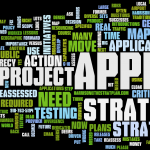By Denise Harrison
Apple is world renowned for its innovative product introductions – but as you look back over history, there have been plenty of flops to go along with the successes. Think about Ping and Rokr – oops, you missed these? Most people did. And, the introduction of the Apple Map application was another clunker. Using Maps, you were driven into dead ends; airport runways were specified as roads, and general requests often put you in a wrong location (yes, you ask for a hospital and get a restaurant.)
What happened? Most simply, Apple underestimated the task:
• Dedicated team was too small
• Team did not have the required competencies
• Testing was local (Maps worked well in Cupertino)
What did Apple do to recover?
Reassessed the importance of the application:
o If deemed important then move forward
o If not, use a third party provider, Apple does this for lots of applications it deems “non-mission critical”
o In this case, Apple decided that the application was critical.
Reassessed the true resourcing and capabilities requirements. The team now has thousands of members (versus a few hundred) and the team has diverse skill sets including how to use “big data” real time (traffic).
Broadened the testing – this meant a move to public testing. This decision forced Apple to move away from its traditional secrecy policy. Large numbers of users in many geographic locations were needed to get the kinks out of Apple Maps.
What does this mean for us?
When executing your strategy, you will need to select a few strategic initiatives (projects) that you need to accomplish. That number should be around 6-10, fewer if you have a large enterprise-wide project. Next you need to develop action plans for each project, with clear action steps, who is responsible and how much time and money each step will take. Assess the resources required for each action plan. Are you under-resourcing and dooming the project to failure?
Once you embark on your strategic initiatives, you may need to make course corrections – did you underestimate the scope of the project – if so, reassess and fix it.
Once a project is complete (or it bombs), do a “lessons learned”:
• What went right?
• What did not go well?
• What will we do differently in the future?
While Apple does not always hit homeruns, it does learn from its mistakes. Apple now uses public testing for many of its new releases – a real divergence to its former cloak of secrecy.
If you have additional questions about strategy development or implementation, please email Denise Harrison at harrison@thestratplan.com or call 910-763-5194.

